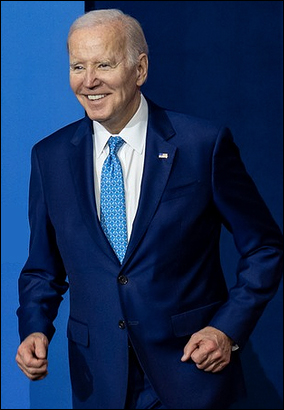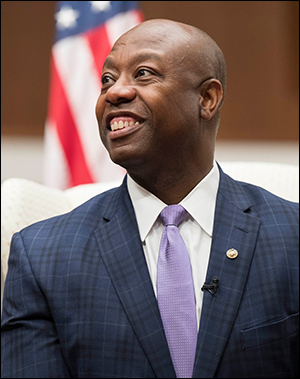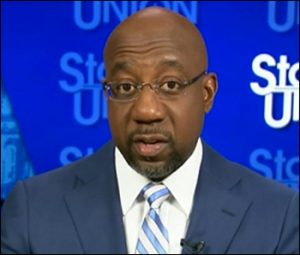By Jim Ellis — Wednesday, May 1, 2024
Senate
 Polling Margin of Error: Different Ballot Tests — All polls contain a margin of error, and two sets of surveys in the Pennsylvania and Wisconsin Senate races demonstrates the importance of the spread.
Polling Margin of Error: Different Ballot Tests — All polls contain a margin of error, and two sets of surveys in the Pennsylvania and Wisconsin Senate races demonstrates the importance of the spread.
Both CBS News and Emerson College were in the field in both states at relatively the same point in time, but they arrived at significantly different results for the same races. CBS News (conducted by the YouGov polling firm; April 19-25; 1,306 registered Pennsylvania voters; online) found Sen. Bob Casey Jr. (D) leading businessman David McCormick (R), 46-42 percent. Beginning on April 25, Emerson College also studied the Keystone State Senate race. Their data (April 25-29; 1,000 likely Pennsylvania general election voters; multiple sampling techniques) posted Sen. Casey to a much larger 46-39 percent advantage.
Using a margin of error figure of three percentage points, we see that these two polls do fall within the pre-stated specter. Yet, the difference between a four- and seven-point edge on the ballot test is substantial.
We see a similar situation in the latest Wisconsin polling. During the same polling periods, again for both pollsters, we see similar divergent results yet within the polling margin of error. CBS/YouGov (April 19-25; 1,245 likely Wisconsin general election voters; online) finds Sen. Tammy Baldwin (D) leading businessman Eric Hovde (R) 48-41 percent, while Emerson (April 25-29; 1,000 registered Wisconsin voters; multiple sampling techniques) again finds a closer race. Their result detects a Baldwin edge of only 46-43 percent. Again, a significant difference, yet within the polling margin of error spread.
House
FL-1: McCarthy Ally to Challenge Rep. Gaetz — At last Friday’s candidate filing deadline, controversial Rep. Matt Gaetz (R-Niceville/Pensacola) drew a Republican primary challenger who could enjoy outside support. Retired Navy officer Aaron Dimmock (R) filed his candidacy just before time expired. Reports suggest that former House Speaker Kevin McCarthy (R-CA) will back Dimmock and raise substantial support money from loyal organizations who want to even the score for McCarthy’s political demise. Rep. Gaetz was the leader of the McCarthy ouster movement.
It remains to be seen how well Dimmock could perform in the Aug. 20 Republican primary. In 2022, Rep. Gaetz easily turned back a well-funded Republican primary challenge from businessman Mark Lombardo who spent just under $800,000 for his campaign. The congressman won renomination over Lombardo with a landslide 70-24 percent victory margin.
Louisiana: Court Strikes Down New Congressional Map — Louisiana plaintiffs challenging the state’s new congressional map that created a second majority minority district that stretched from Baton Rouge to Shreveport received a favorable ruling yesterday from the three-judge federal panel hearing the lawsuit. The decision means the new congressional map is nullified. The judicial panel will now consider replacement maps. The plaintiffs argued the district was drawn only on racial criteria in violation of the US Constitution.
The ruling is likely to help Republicans, and particularly Rep. Garret Graves (R-Baton Rouge) whose GOP favorable 6th District was reconfigured as a majority minority seat designed to elect an African-American Democrat. The secretary of state informed the court that the 2024 districts must be in place by May 15 to allow the election office to properly administer the election. Therefore, a quick remedy decision will soon follow.
NY-26: Tim Kennedy (D) Wins Special Election — As expected, state Sen. Tim Kennedy (D-Buffalo) easily scored a special election victory last night to succeed resigned Rep. Brian Higgins (D) in New York’s 26th Congressional District. Kennedy received 75 percent of the vote in the heavily Democratic seat that Republicans basically conceded. The latter party’s candidate, West Seneca Town Supervisor Gary Dickson, reported raising only $35,000 in the pre-election Federal Election Commission disclosure report.
The Kennedy victory means the House party division will move to 217R – 213D with five vacancies (4R – 1D). The 26th District encompasses the Buffalo metropolitan area including parts of Erie and Niagara Counties.
Governor
Delaware: Gov. Carney to Run for Mayor — Two-term Delaware Gov. John Carney (D), who is ineligible under the state’s election law from seeking a third term, instead announced that he will run for mayor of Wilmington. Should Gov. Carney win the open municipal post — he’ll be favored to top City Treasurer Velda Jones-Potter (D) — he would become at least the third governor to later become a mayor.
Gov. Carney would join former Maryland Gov. Ted McKeldin (R) who was elected the state’s chief executive in the 1950s and then return as mayor of Baltimore in the 1960s. Gov. Jerry Brown was elected mayor of Oakland after his first stint as governor of California. He would then return to the governorship and eventually serve 16 non-consecutive years as the state’s chief executive.





